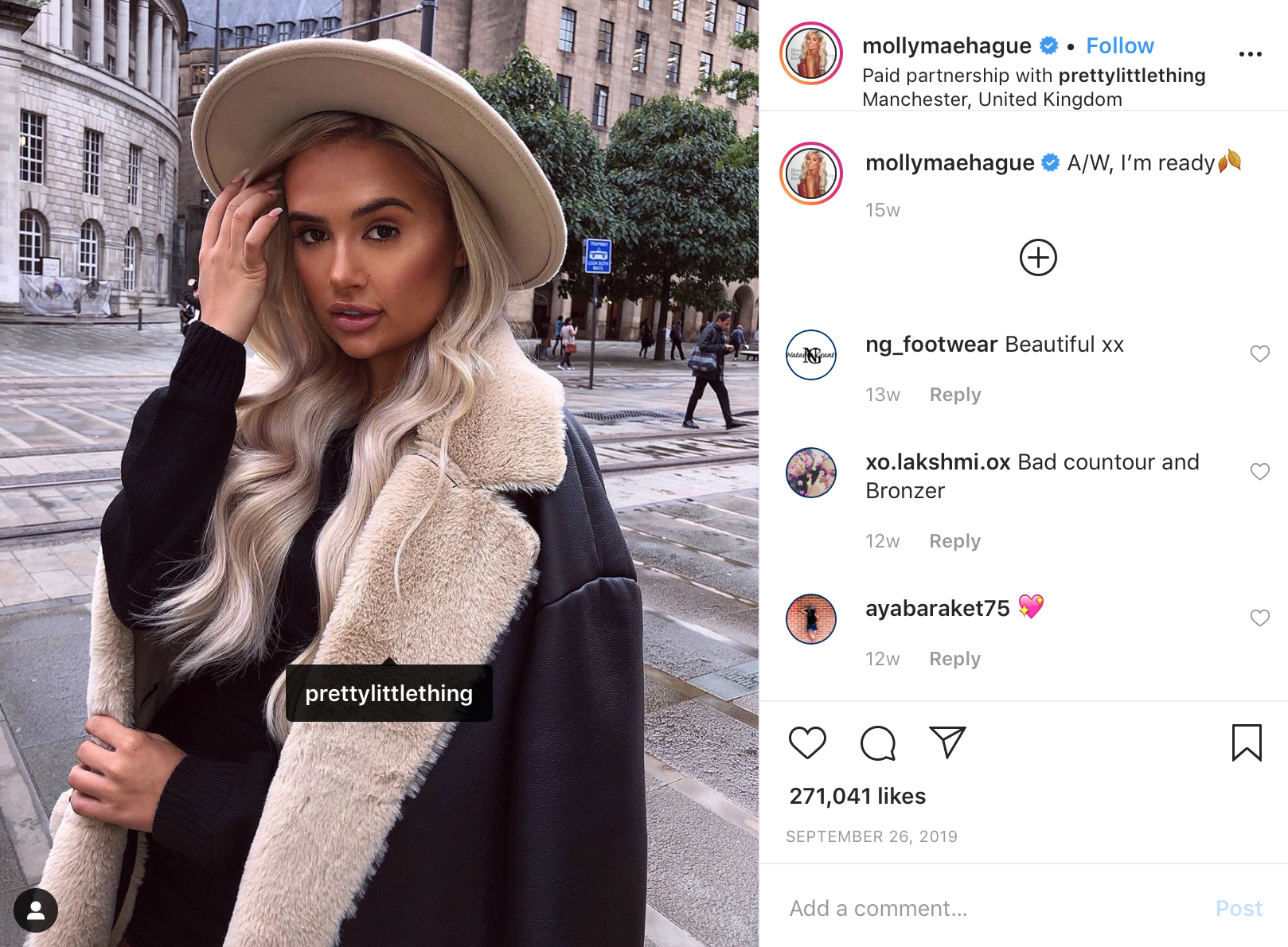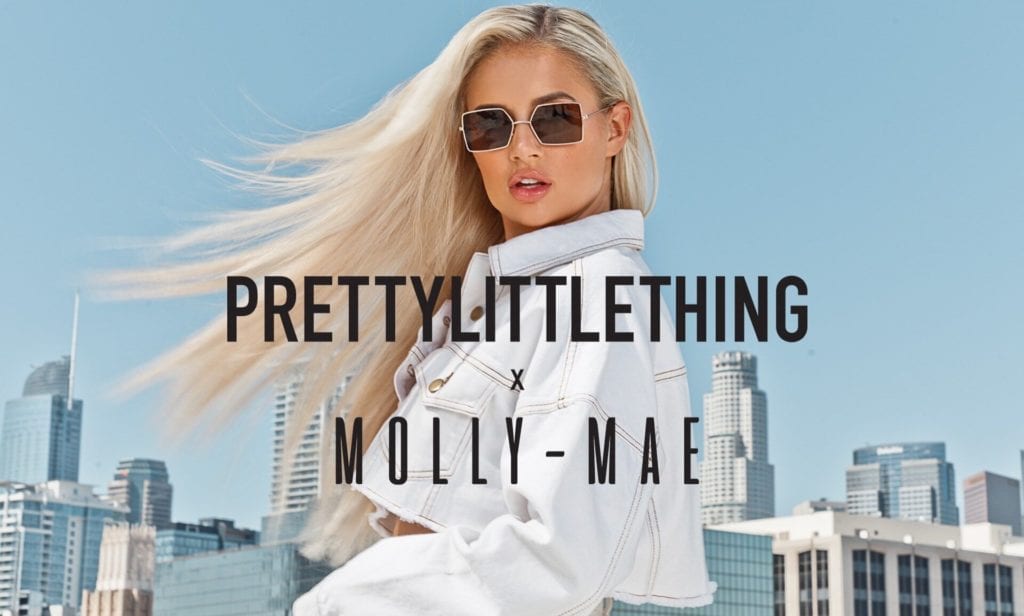On the heels of selling legally questionable garments bearing the name and a drawing of designer John Galliano, and then quietly pulling the pieces from its e-commerce shelves, PrettyLittleThing is under fire again. This time, PrettyLittleThing has garnered the attention of the British Advertising Standards Authority (“ASA”), which held in an interesting new decision that even if the brand did not explicitly require a brand ambassador to post on its behalf, the fact that the individual has a relationship with the brand means that she has to spell out that tie for her social media followers.
In a decision issued last week, the British advertising watchdog determined that a since-updated Instagram post of Love Island star Molly-Mae Hague wearing a coat from Manchester-based fast fashion brand PrettyLittleThing, which she tagged, ran afoul of the UK Code of Non-broadcast Advertising, Sales Promotion and Direct Marketing for failing to explicitly reveal the reality star’s relationship with the brand.
While counsel for PrettyLittleThing and a rep for Hague confirmed to the ASA that the post at issue – which Hague published on September 26, 2019, along with the caption, “A/W, I’m ready” – “did not arise from Hague’s contractual obligations as a brand ambassador” for PrettyLittleThing, and instead, was “an organic feed post and she had tagged PrettyLittleThing in the post because she was wearing one of their products.”
Both parties also noted that Hague mentions in her Instagram bio line that she is an ambassador for the PrettyLittleThing brand. (The ASA stated that disclosure by way of an Instagram bio is insufficient, as “text in an Instagram bio [is] only likely to be seen a limited number of times by followers and not when people were viewing individual posts in isolation.”)
 image via Molly-Mae Hague
image via Molly-Mae Hague
Regardless of whether Hague was paid – or better yet, not paid – for the specific paid for the post at issue, the ASA still called foul, asserting in its formal determination on January 9 that because Hague, 20, does, in fact, have a contractual relationship with the brand in furtherance of which she is compensated to promote its wares to her 3.6 million Instagram followers, her posts about the brand and its products fall within the scope of the UK advertising code , and thus, require explicit disclosure, such as “#ad”, as without that, the ASA “concluded that the post was not obviously identifiable as a marketing communication.”
With this in mind, the ASA ordered that going forward, “the ad must not appear in the form complained of,” and both PrettyLittleThing and Hague must “ensure that their ads are obviously identifiable as marketing communications, for example by including a clear and prominent identifier, such as #ad.”
This case is particularly striking since it is common for influencers’ contracts with brands to require them to publish a specific number of posts. However, it is also common for influencers to post additional content related to that brand that is not explicitly required by the contract, thereby giving rise to a gray area when it comes to the parties’ relationship and the disclosures required. The ASA’s decision helps to clarify some of this.
In the U.S., the Federal Trade Commission (“FTC”) requires that when influencers have a relationship with – or technically speaking, have “a personal, family, or employment relationship with or a financial connection” to – a brand, they must disclose this when they endorse that brand and/or its products. (Note: Endorsements in which individuals have no relationship/connection to the manufacturing brand and in which they “are just telling people about a product [they] bought and happen to like,” do not require disclosures.)
In light of the ASA’s decision, a rep for PrettyLittleThing told TFL, “PrettyLittleThing is aware of the ASA guidelines and strives to ensure all its Influencer ads comply with ASA guidelines. In this instance, the post made my Molly Mae was an organic, unpaid post in which Molly tagged PLT in the image. PLT and Molly will continue working together to ensure the ‘paid partnership’ tag is used, where relevant, in all further posts.”











